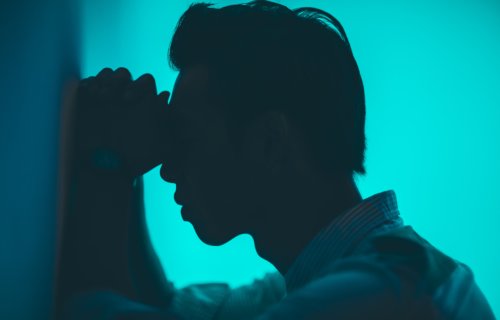CHICHESTER, United Kingdom — Anxiety is a feeling we’ve all experienced to varying degrees. Some wrestle with persistent anxious feelings on a nearly constant basis, while others may only feel jittery during particularly stressful moments. Now, however, new research from the University of Chichester reports undergraduate university students dealing with social anxiety are more likely struggle both socially and academically.
The issue affects far more students than one may realize. One prior study estimates that 22 percent of university students in the United Kingdom deal with some form of social anxiety while pursuing a degree. Another project states the percentage may be as high as 80 percent.
The study finds social anxiety while attending college is linked with lower grades, negative thought patterns, poor social relationships with classmates, and social isolation. Even worse, many students struggle silently with this condition, hesitant to seek help over fears of being labelled “odd” or “crazy.”
“For those with feelings of social anxiety, university can present unique challenges, but there is surprisingly little research into the problem. Undiagnosed and moderate feelings of social anxiety can result in numerous impairments for students at university,” says psychologist and study co-author Dr. Ian Tyndall, from the University of Chichester, in a press release.
Anxious college students tend to have common characteristics
For this new study, researchers interviewed a group of students from various U.K. universities. All study subjects had been dealing with social anxiety while at school. Those interviews led to the discovery of five main characteristics among anxious college students.
One of those five characteristics is self-consciousness, usually sparked by negative emotions, that often results in the student over-thinking things and ruminating on unrealistic expectations of being judged harshly by others. Notably, many interviewed students admitted that they actually attempt to change their entire personality around certain peers as a way to alleviate their anxiety. Others turn to alcohol to gain some liquid confidence and feel less anxious, even if only temporarily.
Another recurring theme emerged among student responses. Following an especially negative or anxiety-inducing social experience many students can’t help but isolate themselves for the world for an extended period. Such actions can result in missing important classes and assignments, which of course ultimately hurts one’s academic grades.
“From this investigation, we can see that students’ social fears created difficulty in social and academic contexts, often resulting in negative self-concepts and generally poor emotional experiences. This includes deficits in relationships with others, potential academic disruption, safety behaviors to reduce anxiety, and excessive anticipatory worry and rumination after the event,” study co-author Dr. Moitree Banerjee concludes.
The study is published in Qualitative Report.
